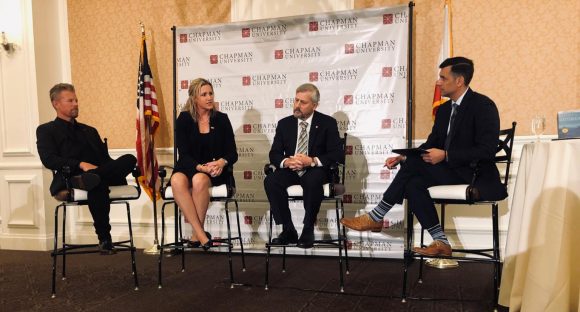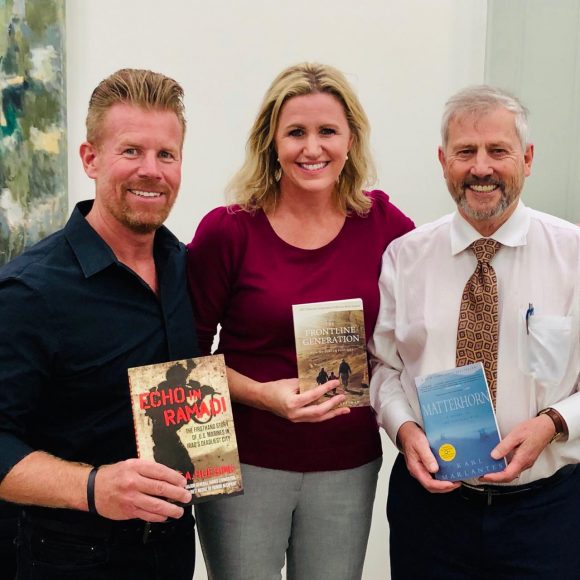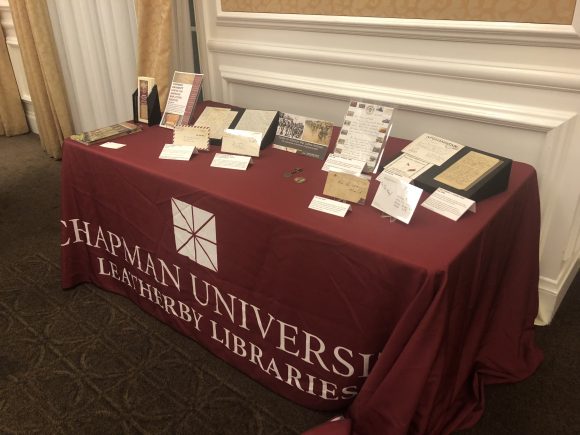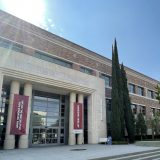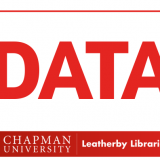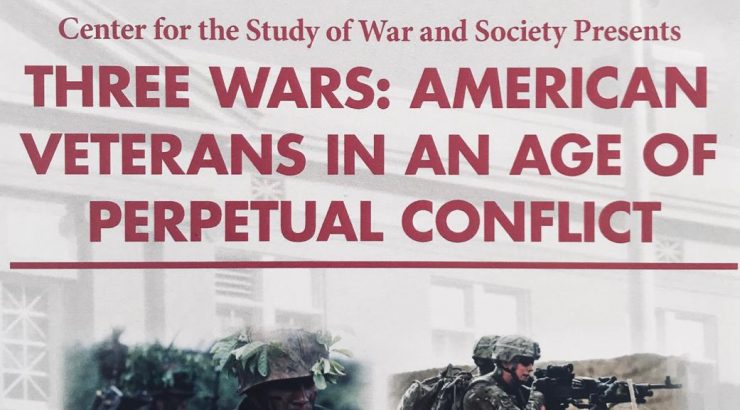
Three Wars Event a Huge Success Panelists Brought an Important Message to Orange County and the Chapman Community
September 25, 2019
On Thursday September 19, panelists gathered at the Pacific Club in Newport Beach to discuss their books and an important message for our country. The Richard M. Nixon Foundation joined Chapman’s Center for the Study of War and Society to host an event for prominent members of not only the Chapman community, but throughout Orange County and Southern California.
After dinner, three veterans and authors took the stage with Dr. Gregory Daddis to discuss what they called the “Three Wars,” Vietnam, Afghanistan, and Iraq, and how they have held America and its veterans in a perpetual state of conflict for roughly six decades.
Marjorie K. Eastman is an Army veteran of Afghanistan and recently published The Frontline Generation: How We Served Post 9/11; a memoir and the first book to define post 9/11 service and leadership.
Scott Huesing is Marine veteran of Iraq and author of Echo in Ramadi, the account of his unit, Echo Company, 2nd Battalion, 4th Marines as they fought in one of the deadliest cities in the country.
Karl Marlante is an Army veteran of Vietnam who took forty years to publish his memoir, What it is Like to Go to War, and recently penned a similarly themed fictional novel, Matterhorn.
The discussion between these three ranged from comedic, owing to their great rapport and new friendship, to serious and tragic, discussing their own experiences in leading combat troops in hostile situations. The theme of the night, however, was to convey the humanity and individual experience shared by men and women in an age of perpetual conflict, with a national service message to more strongly consider military action and its consequences on our society.
The event was broadcast on C-SPAN and a link will be available soon on their website.
The Center for American War Letters Archives was invited to take part in this special event and brought some history to reflect the panelists’ own experiences. After the panelists were invited for a tour of the archives, some of the archives joined them at a table in the Pacific Club dining hall. These letters represented soldiers and marines who fought in the three wars, earning a warm reception for attendees with many questions on what we do and how they can help. Through our great relationship, the Center for American War Letters Archives will continue to be involved with the Center for the Study of War and Society and the Richard M. Nixon Foundation for many events yet to come.
